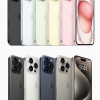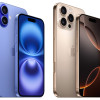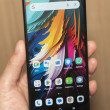Unwired Planet Sues Apple and Google Over Patents
Sep 20, 2012, 8:10 AM by Eric M. Zeman
Unwired Planet today announced that it has filed separate lawsuits against Apple and Google for violating its intellectual property. The company alleges that each company is violating 10 patents, for a total of 20 patent complaints. The lawsuit against Apple names devices such as the iPhone, iPad, and iPod; applications such as iTunes and the App Store; and services such as Siri, Apple Maps, Safari, and iAd. The patents themselves cover a wide range of technologies, including detecting and connecting to wireless data networks, server-based speech recognition, and offering location data to mobile devices, among others. In its case against Google, Unwired Planet names a large selection of Google services, such as the Google Play Store, Google AdWords, Google Search, Google Maps, Google Wallet, and many others. The patents it accuses Google of violating incude those that cover providing graphical location data to mobile devices, method and apparatus for protecting identities of mobile devices on a wireless network, and the systems and methods necessary to connect devices via NFC. The lawsuits were file in the U.S. District Court for the District of Nevada.
RENO, Nev.--(BUSINESS WIRE)--Unwired Planet, Inc. (NASDAQ: UPIP), through its Nevada-based subsidiary, Unwired Planet LLC, today announced it has filed patent infringement complaints against Apple Inc. and Google Inc. in the U.S. District Court for the District of Nevada. The suits were filed by Unwired Planet to protect its intellectual property (IP) licensing business.
“Apple and Google generate substantial revenues from devices and services that rely on the intellectual property that Unwired Planet developed and patented over the last 15 years. They should compensate us for the use of our patented technologies, which are foundational to mobility”
In two separate complaints filed in Reno, Nevada, Unwired Planet charges Apple with infringing 10 of its patents, and charges Google with infringing 10 different patents. Together, the two cases charge infringement of a total of 20 patents related to smart mobile devices, cloud computing, digital content stores, push notification technologies and location-based services such as mapping and advertising.
“Today's actions follow a careful review that we launched in late 2011 as we began to transform Unwired Planet into an Intellectual Property company,” said Mike Mulica, CEO of Unwired Planet. “This litigation marks a key step in our multi-pronged strategy to maximize shareholder value through the licensing of our robust portfolio of patents and to protect our IP through litigation against unlicensed parties as necessary.”
“Apple and Google generate substantial revenues from devices and services that rely on the intellectual property that Unwired Planet developed and patented over the last 15 years. They should compensate us for the use of our patented technologies, which are foundational to mobility,” Mulica said. “As we have recently announced, we are relocating our operations to Nevada, a business-friendly, cost-effective and convenient location. Nevada has been chosen as one of 14 districts across the United States as a pilot patent district and it has developed specialized procedures to handle complex patent cases. As a result, we believe the Nevada district will be an ideal venue to resolve this matter with efficiency and expertise.”
Unwired Planet, founded in 1994, has been at the forefront of the mobile internet since the mid-1990s. It was one of the founders of the Wireless Application Protocol alliance, and has invented and patented technologies at the forefront of mobile communications. The company has been awarded approximately 200 U.S. and foreign patents and has approximately 75 pending applications. This IP encompasses some of the basic technologies that have enabled the deployment of mobile Internet browsing, the creation of the first technology that enabled photo messaging, and the launch of the world's first Wireless Access Protocol (WAP), among many other innovations.
“The extensive number of patents named in the complaints against Apple and Google, together with the four patents pending in another case filed last year before the International Trade Commission against Apple and RIM – and their foundational nature – showcase the breadth and depth of our portfolio, which includes inventions key to mobility, including smart devices, cloud and push technologies, location-based advertising and services, and application and content access,” said Mulica.
In the case against Apple, the complaint specifically alleges that infringing Apple products and services include, among others:
Mobile Devices (including mobile phones, tablets, and music players with the iOS operating system including iPhones, iPads, and iPods),
Mobile Digital Content Systems and/or Services (including Apple App Store, Apple Apps, iTunes),
Cloud Messaging Systems and/or Services (including Apple Push Notification Service (APNS), Siri), and
Map and Location Systems and/or Services (including Apple Maps, Local Search, iAds, Safari web browser, Find My iPhone, Find My iPad, and Find My Friends).
The patents asserted against Apple are:
1. United States Patent No. 6,317,594, entitled “System and method for providing data to a wireless device upon detection of activity of the device on a wireless network,” asserted against devices such as iPhones and iPads which are able to get information, for example update notifications, when the device is switched on or moves between cells of the cellular network.
2. United States Patent No. 6,317,831, entitled “Method and apparatus for establishing a secure connection over a one-way data path,” asserted against services which use a push mechanism to get notifications to devices such as update badges sent to iPhone and iPad applications.
3. United States Patent No. 6,321,092, entitled “Multiple input data management for wireless location-based applications,” asserted against devices such as iPhones and iPads which use more than one source of location information, for example GPS, Wi-Fi and cell tower location.
4. United States Patent No. 6,532,446, entitled “Server based speech recognition user interface for wireless devices,” asserted against wireless server-assisted speech recognition for personal assistant services and dictation, such as Siri on iPhones and iPads.
5. United States Patent No. 6,647,260, entitled “Method and System Facilitating Web Based Provisioning of Two-Way Mobile Communications Devices,” asserted against Appstores for selecting and downloading applications on devices such as iPhones and iPads.
6. United States Patent No. 6,813,491, entitled “Method and apparatus for adapting settings of wireless communication devices in accordance with user proximity,” asserted against ways of using motion and proximity sensors to control devices like iPhones and iPads.
7. United States Patent No. 7,020,685, entitled “Method and apparatus for providing internet content to SMS-based wireless devices,” asserted against automated searching and information delivery based on keywords in a message from a mobile device, for example as used in Siri for iPhones and iPads.
8. United States Patent No. 7,233,790, entitled “Device capability based discovery, packaging and provisioning of content for wireless mobile devices,” asserted against digital stores with content and Apps for devices with different capabilities, for example the App Store for iPhones and iPads.
9. United States Patent No. 7,299,033, entitled “Domain-based management of distribution of digital content from multiple wireless services subscribers,” asserted against services such as iTunes or the App Store that distribute digital content to multiple domains, internationally.
10. United States Patent No. 7,522,927, entitled “Interface for wireless location information,” asserted against ways of obtaining device location information such as Find my iPhone, Find my iPad and Find my Friends.
The complaint against Google specifically alleges that infringing Google products and services include, among others:
Search and Advertising Systems and/or Services (including Google Search, Google AdWords, Google+Local, Google Places, Google Mobile Ads),
Mobile Digital Content Systems and/or Services (including Google Play, Google Apps, Bouncer, C2DM, and GCM),
Cloud Messaging Systems and/or Services (including C2DM and GCM),
Maps and Location Systems and/or Services (including Android Location, Google Maps, Google Street View, Google Latitude, Google My Location, Google+, Google+Local, Google Places),
Short-Range Radio Communications Systems and/or Services (including Google Wallet, Google Offers, and Google Mobile Ads), and
Mobile Devices (including mobile phones and tablets with the Android operating system, including Motorola Mobility and Nexus mobile phones and tablets).
The patents asserted against Google are:
1. United States Patent No. 6,292,657, entitled “Method and Architecture for Managing a Fleet of Mobile Stations Over Wireless Data Networks,” asserted against mass updates to applications installed on devices such as Android phones and tablets.
2. United States Patent No. 6,654,786, entitled “Method and Apparatus for Informing Wireless Clients about Updated Information,” asserted against push mechanisms to get updated information to devices such as Android phones and tablets.
3. United States Patent No. 6,662,016, entitled “Providing Graphical Location Information for Mobile Resources Using a Data-Enabled Network,” asserted against placing a location marker for the current location of a mobile device on a corresponding map, such as My Location in Google Maps.
4. United States Patent No. 6,684,087, entitled “Method and Apparatus for Displaying Images on Mobile Devices,” asserted against zooming into a map on devices such as Android phones and tablets, and providing zoomed-in images to users of Google Maps.
5. United States Patent No. 6,895,240, entitled “Method and Architecture for Managing a Fleet of Mobile Stations over Wireless Data Networks,” asserted against group and mass notifications/updates to mobile devices such as Android phones and tablets.
6. United States Patent No. 6,944,760, entitled “Method and Apparatus for Protecting Identities of Mobile Devices on a Wireless Network,” asserted against authenticated push of information from application developers to devices such as Android phones and tablets.
7. United States Patent No. 7,024,205, entitled “Subscriber Delivered Location-Based Services,” asserted against search and advertising using location, such as sponsored links in Google searches which are paid for using Google Adwords.
8. United States Patent No. 7,035,647, entitled “Efficient Location Determination for Mobile Units,” asserted against identifying the location of a device, such as an Android phone or tablet, with increased accuracy using multiple sources, such as GPS, Wi-Fi and cell tower location.
9. United States Patent No. 7,203,752, entitled “Method and System for Managing Location Information for Wireless Communications Devices,” asserted against privacy control for applications requesting access to the location to a device, such as an Android phone or tablet.
10. United States Patent No. 7,463,151, entitled “Systems and Methods for Providing Mobile Services Using Short-Range Radio Communication Devices,” asserted against devices with advanced Near Field Communications (NFC) services, such as NFC-based commerce, advertising and coupons, and access to content using NFC.
Comments
Patel troll trying to get a quick pay day..
I have a feeling this "company" has never created a product and is just sitting on patents to sue anyone.
Haggard said:
I have a feeling this "company" has never created a product and is just sitting on patents to sue anyone.
Sounds like Apple. Almost.


 Samsung Refreshes Galaxy S Series with S Pen, New Cameras
Samsung Refreshes Galaxy S Series with S Pen, New Cameras
 Samsung Refines its Foldable Phones
Samsung Refines its Foldable Phones
 iPhone 14 Plus Offers a Big Screen For Less
iPhone 14 Plus Offers a Big Screen For Less
 iPhone 15 Series Goes All-In on USB-C and Dynamic Island
iPhone 15 Series Goes All-In on USB-C and Dynamic Island
 iPhone 16 Brings More Features to All Price Points, Including New Camera Control
iPhone 16 Brings More Features to All Price Points, Including New Camera Control



